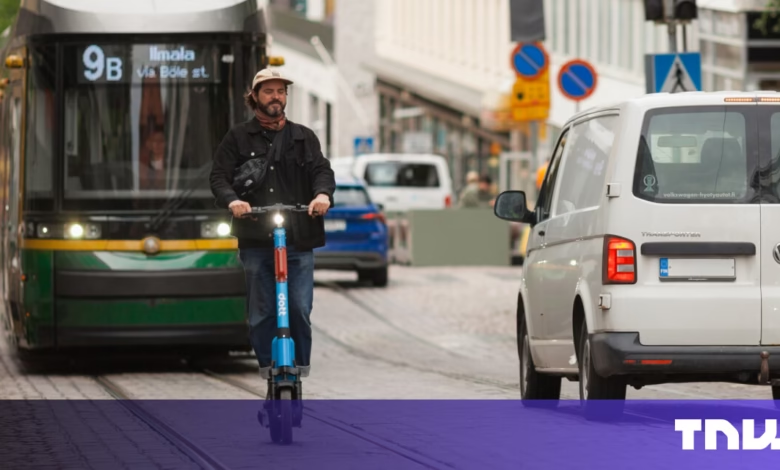Helsinki Uses AI to Predict E-Scooter Crashes in Advance

▼ Summary
– Helsinki is testing AI-equipped e-scooters with sensors to monitor rider behavior and detect safety risks in real time.
– The pilot involves 40 e-scooters from Tier-Dott, using UK-based See.Sense sensors and a French data platform by Vianova.
– The project, coordinated by Forum Virium Helsinki, aims to help cities proactively address e-scooter safety through data.
– European cities have imposed restrictions on e-scooters due to rising accidents, with some banning rentals or capping fleet sizes.
– The Helsinki pilot focuses on infrastructure quality, not just rider behavior, to identify root causes of accidents and inform future regulation.
Helsinki is pioneering an innovative approach to micromobility safety by deploying AI-enabled e-scooters that predict potential accidents before they happen. The city’s latest pilot program equips 40 shared scooters with advanced sensors designed to identify risky riding patterns and hazardous road conditions in real time.
The initiative, supported by European Union funding, brings together key players in the mobility sector. Tier-Dott, a major European operator, provides the scooters, while UK-based See.Sense supplies the sensor technology capable of detecting abrupt maneuvers like sudden braking or swerving. French startup Vianova processes the collected data through its mobility analytics platform, offering actionable insights for urban planners.
Coordinated by Forum Virium Helsinki, the city’s innovation hub, the project forms part of the EU-backed ELABORATOR program, which seeks to enhance road safety through proactive measures. “This technology gives us unprecedented visibility into accident-prone areas and near-miss incidents,” explains Noora Reittu, senior project manager for ELABORATOR.
E-scooter safety has become a pressing issue across Europe, with accident rates climbing sharply. In Germany alone, authorities recorded 9,425 e-scooter-related crashes in 2023, including 22 fatalities, a figure that doubled from the previous year. Cities have responded with stricter regulations, from Paris banning rental scooters to Madrid and Oslo imposing fleet limits and lower speed zones.
For operators, the challenge lies in balancing profitability with safety compliance. Tier-Dott, formed through a recent merger, sees data-driven partnerships as a path forward. By embedding sensors directly into vehicles, the Helsinki pilot shifts attention from rider behavior to infrastructure weaknesses, potentially uncovering systemic issues that contribute to accidents.
“Collaborating with Helsinki allows us to move beyond reactive measures and pinpoint risks before they escalate,” says Elina Bürkland, Dott’s Nordic public policy lead. The findings will contribute to broader EU research on safe urban mobility and could influence future regulations. As cities grapple with micromobility’s rapid expansion, Helsinki’s experiment may set a new standard for proactive safety solutions.
(Source: The Next Web)